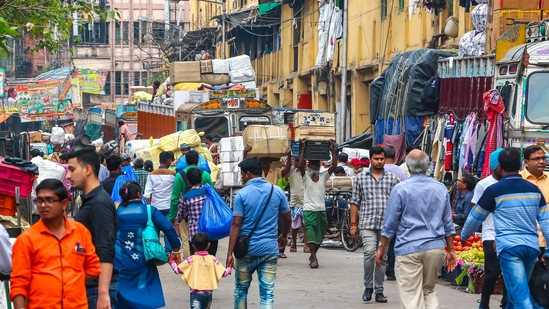Feb 24, 2025 07:02 AM IST
The BBC investigation found the company’s products being sold on streets across Ghana, Nigeria, and Cote D’Ivoire, where they are contributing to a significant public health crisis.
The Union ministry of health and family welfare has ordered immediate cessation of production at Mumbai-based Aveo Pharmaceuticals, which was found exporting an unapproved and potentially dangerous combination of pain-relief drugs to West African nations.

The regulatory action follows a BBC Eye investigation, published on February 21, which revealed the company was manufacturing and illegally exporting an unlicensed combination of tapentadol, a powerful opioid, and carisoprodol, a muscle relaxant banned in Europe due to its highly addictive nature.
“Ministry of health and family welfare has taken immediate and decisive action following some news reports highlighting concerns regarding the export of unapproved combination drugs containing tapentadol and carisoprodol by Indian Pharmaceutical Manufacturer M/s Aveo Pharmaceuticals, Mumbai to certain countries in West Africa,” the health ministry stated, according to a PIB release.
The BBC investigation found the company’s products being sold on streets across Ghana, Nigeria, and Cote D’Ivoire, where they are contributing to a significant public health crisis. The investigation included undercover operations at the company’s factory, where a journalist posed as an African businessman seeking to supply opioids to Nigeria.
A joint inspection team from the Central Drugs Standard Control Organization (CDSCO) and state regulatory authorities conducted a comprehensive audit of Aveo Pharmaceuticals on February 21-22, 2025. The Maharashtra Food and Drugs Authority subsequently issued a Stop Production Order on February 22, the government statement added.
During the audit, authorities seized approximately 13 million tablets/capsules and 26 batches of Active Pharmaceutical Ingredients (APIs) of both drugs. Additionally, an export consignment of tapentadol 125 mg and Carisoprodol 100 mg destined for Ghana was held back at Mumbai Air Cargo pending investigation.
The health ministry clarified that while both drugs are individually approved in India—tapentadol in 50, 75, and 100 mg tablet forms, and 100, 150, and 200 mg extended-release tablets—their combination is not approved. Neither drug is listed under India’s Narcotic Drugs and Psychotropic Substances (NDPS) Act.
This action is part of a broader regulatory compliance initiative launched in December 2022, under which CDSCO and state regulators have inspected 905 pharmaceutical manufacturing and testing units, the government stated. Such inspections have resulted in 694 regulatory actions, including Stop Production Orders, Stop Testing Orders, license suspensions or cancellations, warning letters, and showcase notices.
The ministry has directed all state drugs control authorities and zonal offices to immediately withdraw export NOCs and manufacturing licenses for any combination of tapentadol and carisoprodol. Customs offices at all notified ports have been instructed to route all consignments of these products through CDSCO Port offices.
“The Union government will ensure smooth export operation for legitimate medicines to be used to support healthcare globally and strongly control these aberrations through swift and strong action as demonstrated through recent decisions and actions,” the health ministry statement concluded.


